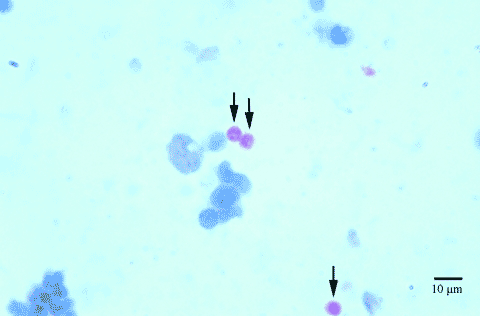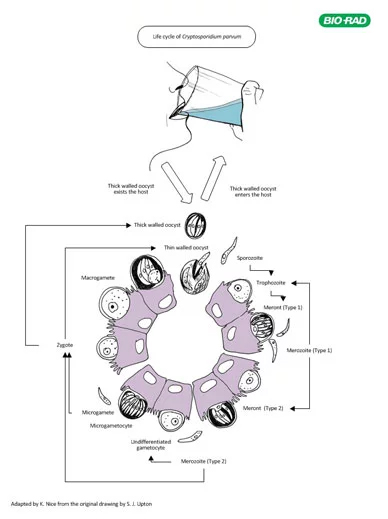Cryptosporidium Antibodies

- On This Page
- Overview
- Cryptosporidium antibodies
- Our cryptosporidium antibody range
Overview
Cryptosporidium is an obligate enteric coccidian parasite of the phylum Apicomplexa that infects the gastrointestinal tract and causes Cryptosporidiosis. Since its first diagnosis in 1975 (Meisel et al. 1976), Cryptosporidiosis, has become one of the most prominent public health concerns worldwide (Rose et al. 2002). The parasite is one of the most important enteric pathogens in both humans and animals (Rose et al.2002). This parasite can be ingested by the host via oocyst contaminated water and food. Thick walled oocysts (sporulated) are excreted by the host and the cycle is repeated if water or food becomes contaminated again with these oocysts.
Cryptosporidium oocysts are resistant to chlorine and their small size makes removal by filtration difficult. Alternative methods have been developed such as UV and ozone treatment alongside monitoring using Immunofluorescence screening (Rose et al. 2002). Cryptosporidiosis is a disease affecting the intestines of mammals which is spread through the fecal-oral route. The main symptom of Cryptosporidium is a self-limiting diarrhea. However, in immunocompromised individuals, such as AIDS patients, infection can cause permanent & life-threatening diarrhea (Ma et al. 1984).

Fig 2. Oocysts (arrows) from Cryptosporidium hominis infection of human respiratory tract stained using the Ziehl-Neelsen method, in sputum from a patient with HIV. DOI:10.3201/eid1303.060394
Cryptosporidium antibodies
Bio-Rad provides several antibodies for the study of Cryptosporidium. Mouse anti Cryptosporidium antibody, clone BEL 0126 recognizes a membrane antigen expressed by the oocysts of Cryptosporidium sp. We also offer the clone 7631 which has been validated to work for ELISA, and is used to detect Cryptosporidium parvum.
Our Cryptosporidium Antibody Range
| Description | Target | Format | Clone | Applications | Citations | Code |
|---|






